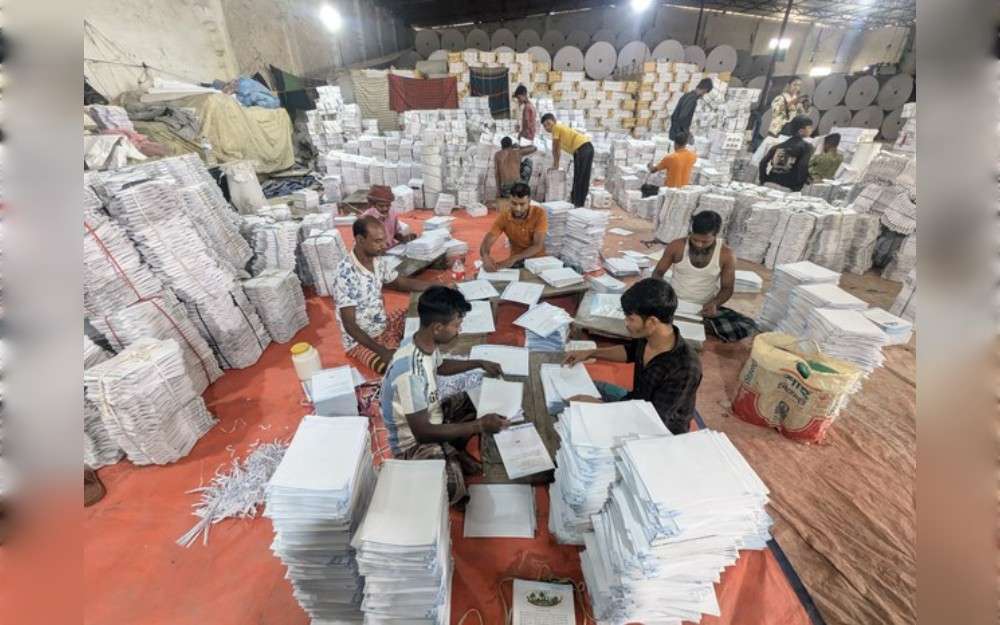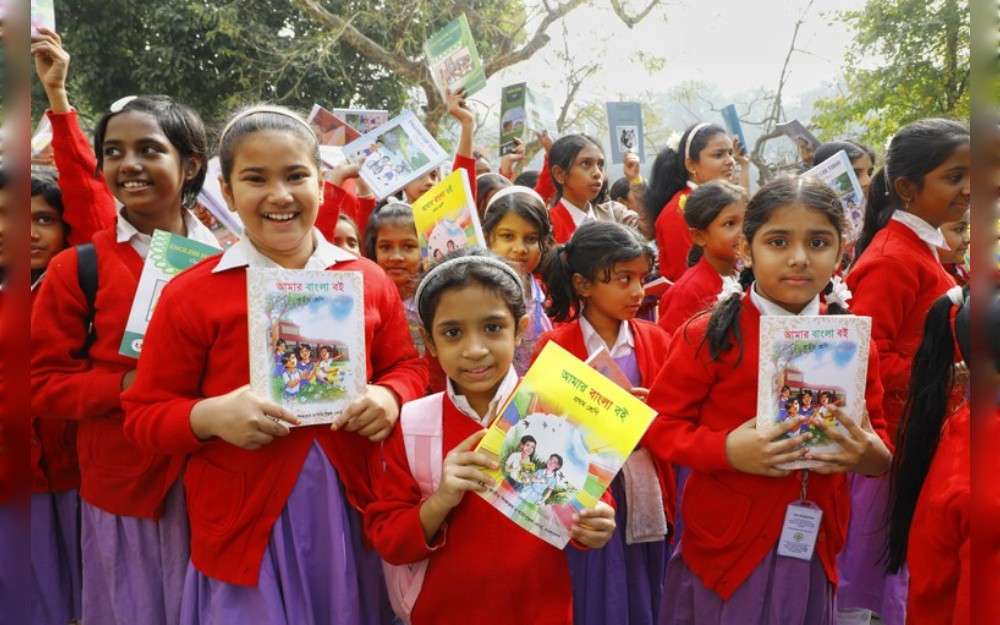Textbook delays threaten learning outcomes for over 43 million students in the South Asian nation, some educators warn.
Zia Chowdhury/Dhaka

A controversial decision by Bangladesh’s interim government to revise the content of some school textbooks has contributed to delays in distributing these curricular materials to millions of students at the start of the new scholastic year.
The delay arose after government officials announced in late 2024 that they would rewrite textbooks to alter historical references to Sheikh Mujibur Rahman, the country’s founding leader and late father of deposed Prime Minister Sheikh Hasina, as having been the one who declared Bangladeshi independence from Pakistan in February 1971.
The updated textbooks instead now credit Ziaur Rahman, a former president and founder of the Bangladesh Nationalist Party (BNP), with declaring independence, although Ziaur, an army major at the time, is widely believed to have issued the declaration on behalf of Mujibur, who was jailed then by Pakistani authorities. The BNP and Hasina’s Awami League party are bitter rivals.
The new textbooks also erase references to Mujibur as the “Father of the Nation.”
Since 2010, the textbooks under the government of Prime Minister Hasina, who fell from power last August, had attributed the 1971 declaration solely to her father.
The decision to revise the textbooks was made to remove “exaggerated” accounts in history and include several historic events that had been omitted in the materials, said A.K.M. Riyajul Hasan, chairman of the National Curriculum and Textbook Board (NCTB).
“Exaggerated content about Bangabandhu Sheikh Mujibur Rahman was removed from the textbooks. One leader, one country – that’s not what it is. There were other leaders, such as Sher-e-Bangla A.K. Fazlul Huq, Maulana Bhashani, and Ziaur Rahman, and there is no scope to underestimate their contributions,” he said on Friday.
These revisions, along with changes in production workflows and government suppliers, have left tens of millions of Bangladeshi students without textbooks after classes began early this month. In Bangladesh, the academic year begins in January and ends in December.
Hasina’s government collapsed in early August, when the autocratic leader resigned and fled after weeks of student-led protests against her 15-year rule. Since August, Nobel laureate Muhammad Yunus has headed an interim government.
The NCTB is the main government agency responsible for the development of curriculums as well as the production and distribution of textbooks to primary and secondary schools.
Riyaj defended the delay in distributing textbooks.
“We had a short time (in producing the books), and many books had to be revised to ensure political impartiality. We also prioritized high-quality printing, paper, and cover,” he told BenarNews.
Riyaj said he hoped that textbooks of selected classes would be distributed by Jan. 31.
“This is our top priority now and hopefully the rest of the grade books will be given by the middle of February,” he said.
A government-accredited publisher also told BenarNews that the distribution of textbooks would not be possible until February.
“[D]istributing all the textbooks … would take a little more time [because of the situation] – lack of imported papers, workers and the changes in the [content],” businessman Tofael Khan said.
There are over 43 million students from pre-primary to the 10th-grade levels in the country, the NCTB said.
The interim government has apologized to the parents and students over the delay of the textbooks and announced that soft copies of the publications were available on the NCTB website as PDF files, Education Adviser Wahiduddin Mahmud said.

But some students said they preferred getting hard copies of textbooks.
“I am not happy with the online books,” said Sanjida Islam, who studies at a school in Noakhali, a district in southeastern Bangladesh.
Some teachers in various parts of the country said they had only received a few copies of the textbooks.
“The coastal school hasn’t given any books for the class of nine and eight but we have been assured some would be given by next Sunday,” said Royal Chandra Das, an assistant teacher in the southern coastal district of Lakshmipur.
Classes have also been disrupted because of the absence of textbooks, he said.
A father told BenarNews that, as of last week, his two daughters had not received their textbooks.
“The one who is studying in the 10th grade received only six books out of 11, and the one studying in the seventh grade received seven books,” said Sana Ullah Sanu, adding they usually get the new textbooks at the start of the new academic year.
The delay in the distribution of textbooks in schools may affect the learning capacity of students, especially those who don’t want to read from online sources, an educator told BenarNews.
“And everyone, especially those who live in remote areas, don’t have the facility to read and afford online books,” said Siddiqur Rahma, a former director of the Institute of Education and Research at the University of Dhaka.
Copyright ©2015-2024, BenarNews. Used with the permission of BenarNews.












